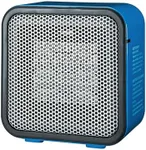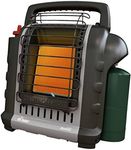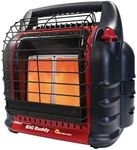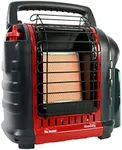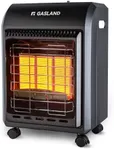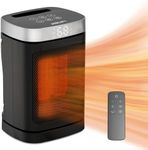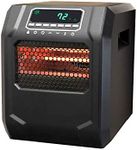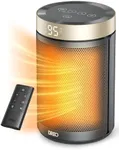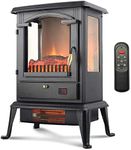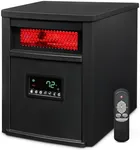Buying Guide for the Best Cordless Space Heater For Camping
Choosing the right cordless space heater for camping is crucial to ensure you stay warm and comfortable during your outdoor adventures. When selecting a heater, it's important to consider various specifications that will affect its performance, portability, and safety. Understanding these key specs will help you make an informed decision and find the best fit for your needs.Power SourceThe power source of a cordless space heater is important because it determines how the heater will be powered and how long it can operate. Common power sources include rechargeable batteries, propane, and butane. Rechargeable battery heaters are convenient and eco-friendly, but their runtime depends on battery capacity. Propane and butane heaters offer longer runtimes but require fuel canisters. Choose a power source based on the duration of your camping trips and the availability of fuel or charging options.
Heating CapacityHeating capacity, measured in BTUs (British Thermal Units) or watts, indicates how much heat the heater can produce. This is important because it affects how well the heater can warm up your space. For small tents or personal use, a heater with lower heating capacity (up to 3,000 BTUs or 500 watts) may suffice. For larger tents or group camping, you may need a heater with higher capacity (3,000-10,000 BTUs or 500-1,500 watts). Consider the size of your camping area and the expected outdoor temperatures when choosing the heating capacity.
RuntimeRuntime refers to how long the heater can operate on a single charge or fuel canister. This is important for ensuring you have consistent heat throughout your camping trip. Battery-powered heaters typically have runtimes ranging from a few hours to over 10 hours, depending on the battery capacity and heat setting. Propane and butane heaters can run for several hours to a full day on a single canister. Choose a heater with a runtime that matches the length of your camping trips and your heating needs.
PortabilityPortability is crucial for camping, as you need a heater that is easy to transport and set up. This includes the heater's weight, size, and design. Lightweight and compact heaters are ideal for backpacking and minimalist camping, while larger heaters may be suitable for car camping or base camps. Look for features like carrying handles, foldable designs, and durable materials to enhance portability. Consider how much space you have in your camping gear and how far you need to carry the heater.
Safety FeaturesSafety features are essential to prevent accidents and ensure safe operation of the heater. Important safety features include tip-over protection, overheat protection, and oxygen depletion sensors. Tip-over protection automatically shuts off the heater if it is knocked over, preventing fires. Overheat protection turns off the heater if it gets too hot, avoiding damage and hazards. Oxygen depletion sensors detect low oxygen levels and shut off the heater to prevent carbon monoxide poisoning. Choose a heater with multiple safety features to ensure a safe camping experience.
Heat SettingsHeat settings allow you to adjust the heater's output to match your comfort level and conserve energy or fuel. This is important for maintaining a comfortable temperature and extending the heater's runtime. Heaters with multiple heat settings (e.g., low, medium, high) offer more flexibility and control. Some heaters also have thermostats to maintain a consistent temperature. Consider your personal comfort preferences and the variability of outdoor temperatures when choosing a heater with adjustable heat settings.
